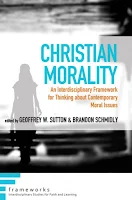“The tribal differences that erupt into public controversy typically concern sex (e.g., gay marriage, gays in the military, the sex lives of public officials) and death at the margins of life (e.g., abortion, physician-assisted suicide, the use of embryonic stem cells in research). That such issues are moral issues is surely not arbitrary. Sex and death are the gas pedals and brakes of tribal growth. ... What’s less clear is why different tribes hold different views about sex, life, and death, and why some tribes are more willing than others to impose their views on outsiders (11).”
—Joshua Greene
MORAL
TRIBES: EMOTION, REASON, AND THE GAP BETWEEN US AND THEM
by Joshua Greene, New York: Penguin Press, 2013, pp. 422. ISBN: 978-1-101-63867-5
Reviewed by Geoffrey W. Sutton, Springfield, MO
*****
I read Greene’s Moral Tribes in 2014. That book along with Haidt’s The Righteous Mind and moral
controversies in politics in religion over same-sex marriage, prompted me to
think of ways Christian Spirituality and Science -- especially psychological science--might find common ground. Even
within the same movement or affiliated group of churches, Christians appeared
to be from different tribes. Subsequently, I wrote A
House Divided. Although I drew more upon moral psychology research, I have
long valued the thinking of philosophers when it comes to analyzing the ideas
of science.
Today, I received my copy of a journal,
which published my academic review of Moral Tribes. It turns out, they had first
published the review in 2015. Anyway, it is a popular read on Academia.edu
and ResearchGate.
And I think with good reason—not my review, but Greene’s analysis.
The quote at the top of this post is
telling. So much of the sociopolitical debate in the US and other countries
that permit open debates has to do with life issues—sex and death—and the
relationships related to such issues in between life's ends. In fact, it is appropriate that the
moral hedges of religion deal with these issues. And religions, traditional boundary makers
of culture, frequently weigh-in when leaders perceive their rights are not carefully considered.
After an organized presentation of many moral psychology experiments revealing the natural separation between groups of people—the Us
and Them problem—Greene takes us back to utilitarian philosophy associated with
Jeremy Bentham and John Stuart Mill. The problem of developing a meta-morality is
not addressed by Greene and certainly utilitarianism has been found wanting as
a universally guiding theory. But then again, attempts to find universal principles
of justice and rights also come up short. And Greene’s analysis of
psychological research won’t take him, or us, to the promised land of a
universal morality.
But I appreciate the book. Here’s why.
Outside academic debates, groups of people
continue to beat the drums of war. At the national level, it can be scary
living as we do in a nuclear age. But at local levels, group conflicts
sometimes lead to death and disability and at other times lead to misery marked
by broken relationships, suspicion, and distrust. We do well to seek common
ground. On the one hand, we might try justice as fairness approaches. And on
the other hand, we may revive utilitarian methods to discover that a common
good may be weighed as of great importance to both tribes, a common goal worthy of pursuit, or a common positive effect when those in conflict agree that life is more important than forcing the other tribe to change its system of rights, values, or "goods." Righteous minds might hate compromise. But compromise in the form of peace treaties, allow people to live in ways others find do not like, provided no one comes to harm.
Connections
Publications (many free downloads)
References
Haidt,
J. (2012). The righteous mind: Why good
people are divided by politics and religion. New York: Pantheon.
Sutton, G. W.
(2016). A house divided: Sexuality,
morality, and Christian cultures. Eugene, OR: Pickwick. ISBN:
9781498224888
Related books
A House Divided on Amazon and other stores.
Wipf and Stock Publishers 199 West 8th Avenue, Suite 3 Eugene, OR 97401-2960
Tel: (541) 344-1528 Fax: (541) 344-1506
Tel: (541) 344-1528 Fax: (541) 344-1506
Ordering inquiries: Orders@wipfandstock.com



Comments
Post a Comment